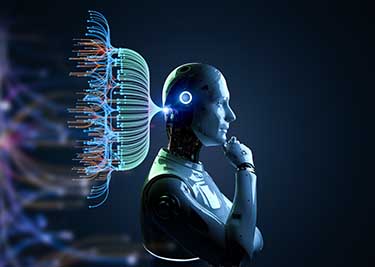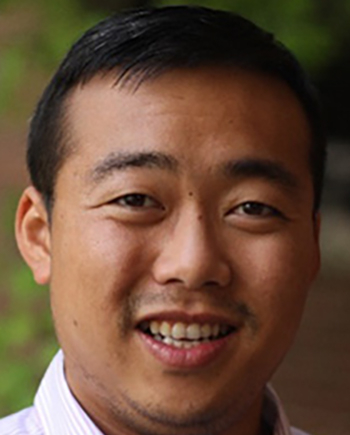The Good, The Bad and The Inevitable of Artificial Intelligence
June 7, 2023
By Chris Becker

So many things we interact with daily are powered by Artificial Intelligence (AI), but recent developments in general AI - where AI learns and then makes decisions on its own – have prompted a very heated public debate regarding its benefits and dangers to society.
“AI will continue to challenge all of our systems,” said Tony Liao, an associate professor in the Digital Media program of the Technology Division at the UH Cullen College of Engineering. “Everything you do when it comes to AI, whether you have the AI doing nothing or making decisions, comes with some sort of ethical implication.”
One such post-pandemic born application is ChatGPT, an AI chatbot trained on an enormous amount of data and capable of generating text, images and other media in response to user prompts. It has gained notoriety for writing entire essays and taking and passing difficult tests like the Uniform Bar Exam and the U.S. medical licensing exam.

“People are worried ChatGPT can verify knowledge in ways we previously thought only humans could do,” Liao said. “If it can pass the bar, then what do our tests, verifications and measures of learning really mean?”
Meanwhile, in the AR/VR world, there is AI that can autogenerate virtual objects and worlds, and piece together “digital twins” of different spaces (a real-life space duplicated as a virtual environment) using only a few images. The psychology of the user experience operating in such an environment is just one area his CougAR Lab team endeavors to explore. Liao founded and directs the lab, where students have the unique opportunity to research augmented, virtual, and mixed-reality technologies from a social science perspective.
“We sit at the intersection between technology and social science research,” said Liao, who founded the lab in 2022. “It’s just been two years since we started building it out, and already students are involved in research, which is one of the university’s goals.”

Team members are also studying VR’s effect on helping people empathize with those experiencing homelessness, and how social interaction is affected by AI-powered digital avatars representing humans in a virtual reality environment.
With its Digital Media program and the CougAR Lab, UH is keeping up with technology and allowing students to research its potential dangers and benefits.
“Universities are typically quite behind about these things,” Liao said. “We try to be at the cutting edge because digital media keeps evolving.”
Digital media, which has surpassed television media in advertising revenue, is at the center of the program’s degree program. With core classes in cutting-edge digital media, students learn “a little bit of everything,” including graphics work, UX (user experience) research, social media content creation and analytics, and helpful business skills. Students coming into the program with an interest in just one specific area of digital media discover they need to learn “whole stack” in order to become professionals in the industry.
There are also courses in emerging technologies, including augmented and virtual reality, Liao’s area of expertise, where students can explore gaming simulation and 3D modeling.
Graduates with a Bachelor of Science in Digital Media are, in Liao’s words, “super-employable.”
Students have completed internships with and gone on to work for Houston Public Media, local Disney affiliates, MD Anderson Cancer Center, the Houston Rockets, NASA, and oil and gas energy companies. While interning, students take on a variety of roles, such as promotion and marketing, but also UX (user experience) research.
“UX is a huge area of growth,” Liao said. “After the pandemic, everything went online as far as e-commerce is concerned; everybody’s building websites, everybody’s building apps.”
The Digital Media program is part of the Technology Division at the Cullen College of Engineering and is housed at the UH instructional site in Sugar Land.